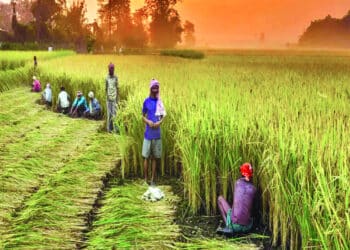Climate change is one of the crises that is affecting every single creature that resides on this planet, globally. The global climate crisis is an issue of concern that has been affecting the environment, and the effects are very well observable in today’s time. Human activities are degrading the core of the atmosphere, and the effect that has been done on the environment is irreversible and, unfortunately, will worsen in the decades to come.
The temperature of the planet is rising at a catastrophic rate. The glaciers are melting, the sea levels are rising, and the heat waves are becoming more intense and prolonged. These are largely due to the increase in greenhouse gases produced because of activities associated with human existence. The world has witnessed the extinction of several species because of the climate crisis. The usual pattern of the environment has been distorted. Scientists have estimated that the change will continue through the centuries. The temperature will rise, and more droughts and hurricanes will be observed. Ironically, these disasters will affect all the living mortals and are a result of human activities, intentionally or unintentionally.

While acknowledging all the changes that are happening in our nature and affecting the flora and fauna, it is also necessary to acknowledge a few positive environmental stories to keep us going and eliminate activities that have no positive effect on the atmosphere.
Some positive environmental updates as of January 2022 are as follows:
India’s forest cover has increased by 2,261 square kilometres in the last two years according to the India State of Forest Report (ISFR) 2021 which was released on Thursday. Andhra Pradesh has the largest share of the increase in the forest area which is around 647 square kilometres. This biennial report by the Forest Survey of India revealed the increase in the total tree and forest cover of 1,540 square kilometres of forest cover and 721 square kilometres as compared to the 2019 report. Union Environment Minister Bhupendra Yadav emphasized the importance of planting more and more trees to achieve India’s aim of increasing additional carbon sink of 2.5 to 3 billion tons CO2 equivalent by 2030. This could be an important aspect for India in terms of climate change and its crisis.

Coral reefs are underwater ecosystems formed of colonies of coral polyps which are held together with calcium bicarbonate. These coral reefs are badly damaged all over the world because of the rising temperature and this leads to wide-scale bleaching of the coral reefs. Studies have shown that even if bleached the coral reefs are still rich in micronutrients. This is optimistic news for those dependent on reefs for food.
Many species of organisms have become extinct because of not having an appropriate environment to survive. A tiny tequila fish has been saved from extinction. This tiny tequila Mexican split fish disappeared in the year 2003. These species of fishes are thriving again in small colonies in freshwater and nothing can be more hopeful than experiencing species returning from the rim of extinction.
An Australian start-up is fighting deforestation with a clan of drones. This company’s project is combating this crisis by associating AI with drones. It is a cheaper way to tackle the concern of deforestation and the technology has been designed in a way to boost the health of the surrounding ecosystem.

Studies have shown the shocking stats that pre-pandemic greenhouse emission of the global conference industry was as much as the entirety of the United States. Studies have shown that shifting to the online and hybrid mode for events could be beneficial for the planet. This reduces the carbon footprints. According to the IPCC (The Intergovernmental Panel on Climate Change) report 2021, the planet had around 8.3-9.7 years before we exceeded the 1.5℃ global warming limit, and switching to the online conference we can extend the deadline by around 2 years.
Also Checkout: Yellow Alert in Delhi for Extreme Cold












